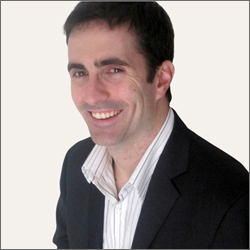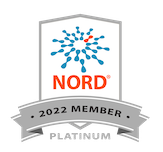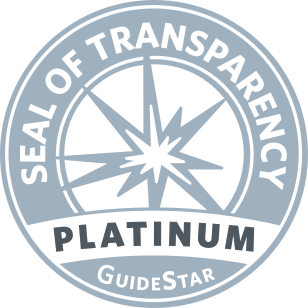What Losing Vision Has Taught Me
Beacon Stories
Author Shawn Maloney describes his journey with RP.

Shawn Maloney
My ophthalmologist’s voice was firm and direct. “You’re going blind.” Tough words for a 5-year-old to digest.
Years later — despite efforts to cure my retinal disease, first as a graduate student, then as a postdoctoral researcher focused on ocular pathology — I came to accept the truth that those words carried. I was slowly being forced to adapt to a world not designed for me, or for any visually impaired person. But the progressive nature of my disease, retinitis pigmentosa, meant that time was on my side. I had time to change how I do things, how I communicate, how I think.
In life, I want the same things most people want: a successful career doing something I enjoy, plenty of time to spend with my family, the chance to pursue personal goals and an opportunity to put a dent in the world. Despite what I once feared, losing vision has not only allowed me to live the life I truly want to live; it has also taught me to do so.
After completing my undergraduate studies in 2005, I announced to my parents that I was setting off on a four-month backpacking trip across Europe. When they emphasized the importance of getting a job, I pulled out my trump card — my failing eyesight — and explained that I could not wait to see the world until I was 65, or even 35, because I would not be able to see much of anything at that point.
So off I went, with their eventual blessing and encouragement. I later penned and published Backpack, a book detailing my adventures, realizing that writing a book — a life goal of mine — would be easier to do while I still had some useful vision.
The same sense of do-it-now urgency prompted me to start my first business — Journal Prep, an academic publication support company — in 2010. But from the very beginning, I found it nearly impossible to work in the business, especially in the role of editor. My disability forced me to spend more time working on the business, hiring other — sighted — people to do the things I could not, and enlisting the help of my brother, Kyle, to coordinate daily activities. This was unfamiliar territory for me, yet it also offered a valuable lesson in leadership and served as the driving force behind the business’ rapid growth.
In my other job, as an ocular pathology researcher, my colleagues and superiors do not expect me to do any of the hands-on experimentation. Rather, my role centers on project conceptualization. I get paid to learn and think about ways to cure blindness, and I cannot imagine a more fulfilling job.
My dependence on hearing rather than seeing has freed me from the 9-to-5-at-a-desk workday. With the help of my assistant, I can handle emails via Skype while taking a walk. I frequently set up phone calls with potential business partners and clients rather than engaging in multi-part email exchanges.
My assistant tracks, reads and records research papers in my field, uploading the MP3 files to a shared Google folder on a weekly basis. I listen to these articles on my iPod while commuting to and from work. This allows me to keep up-to-date on the latest scientific research – including projects funded and supported by the Foundation Fighting Blindness – and the most thought-provoking business ideas.
The benefits of impaired vision have extended well beyond the boundaries of work. I now read for pleasure more than I ever have by listening to audiobooks while at the gym. I play with my kids without being distracted by alerts on my smartphone, which I recently downgraded to a “regular” phone. And I habitually embrace challenges put forth by friends and family — running a half-marathon, learning to cook and writing this blog post, for example — in part because I choose to be the one who defines my limitations.
My vision has never been worse and my quality of life never better. While I firmly believe that vision research has hit a tipping point and that blindness will soon become something of the past, I am thankful for the paradigm shift that I have personally experienced as a consequence of my own affliction with a blinding eye disease.




